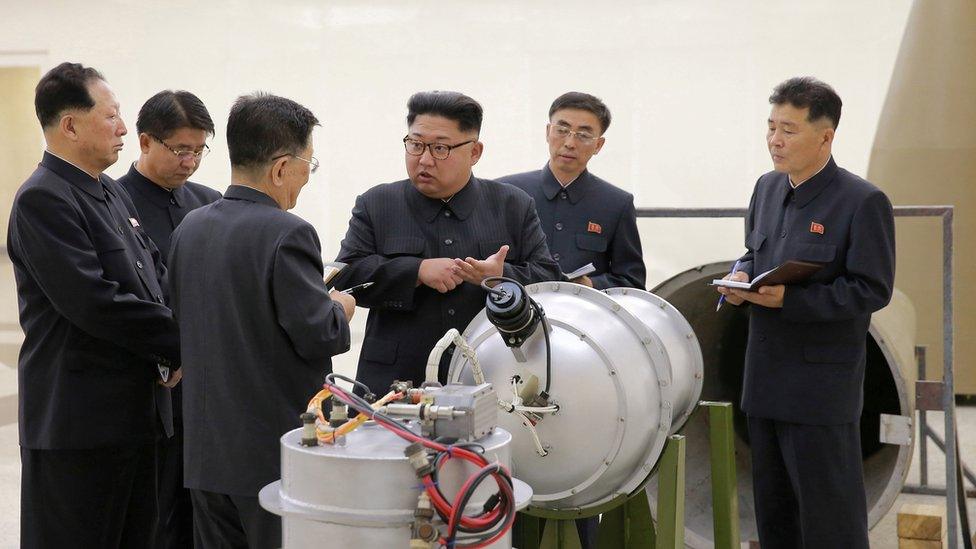North Korea: Chinese foreign minister to visit Pyongyang after historic talks
- Published
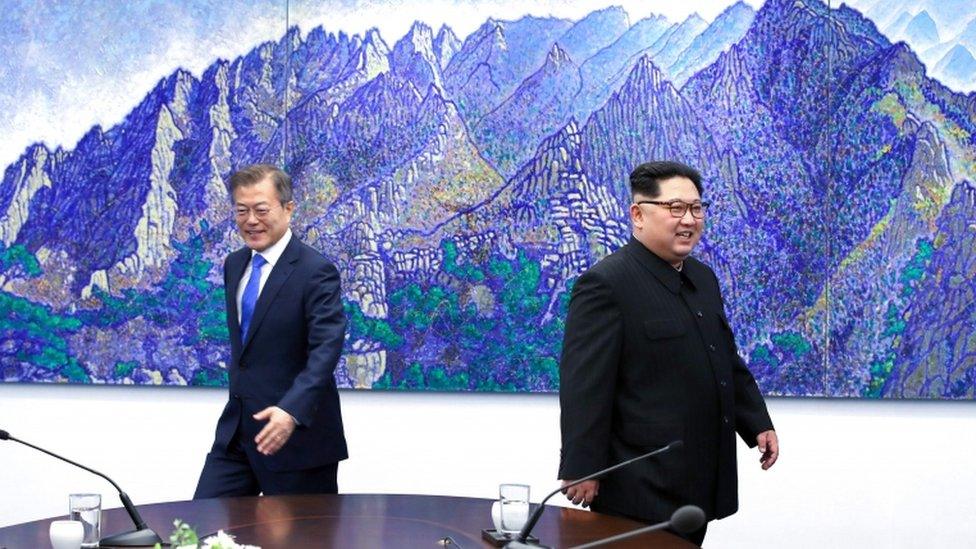
The two Korean leaders have agreed to begin "a new age of peace"
Chinese Foreign Minister Wang Yi is to visit North Korea this week, after historic talks between the North and South last Friday.
The trip comes amid a flurry of diplomatic activity following the landmark day on the peninsula.
China is North Korea's only remaining economic ally, but this will be its highest level visit there in years.
North Korean leader Kim Jong-un is expected to meet US President Donald Trump in the coming weeks.
South Korea has already spoken to the leaders of US and Japan.
According to Beijing, Mr Wang's visit on Wednesday and Thursday is being made at the invitation of the government in Pyongyang.
In March, Mr Kim made a surprise visit to Beijing to see President Xi Jinping, his first international trip since taking office, underlining the importance to Pyongyang of its relationship with China.
Historic Korean talks
On Friday, the North Korean leader and the South's President Moon Jae-in agreed at a historic summit to "completely cease all hostile acts against each other" and to work towards denuclearising the Korean peninsula.
The moment Kim Jong-un crossed into South Korea
The meeting followed months of warlike rhetoric and missile tests from the North.
The commitment to denuclearisation talks about the goal of "a nuclear-free Korean peninsula". It does not explicitly refer to North Korea halting its nuclear activities. South Korea does not have its own nuclear weapons, but is militarily backed by the US, which has tens of thousands of troops stationed there.
According to Seoul, North Korea promised to close its atomic test site next month and invite US weapons experts to the country - a promise not included in the joint declaration from the summit.
North Korea has in the past argued it needs nuclear weapons to defend itself against aggression from outside, especially the US.
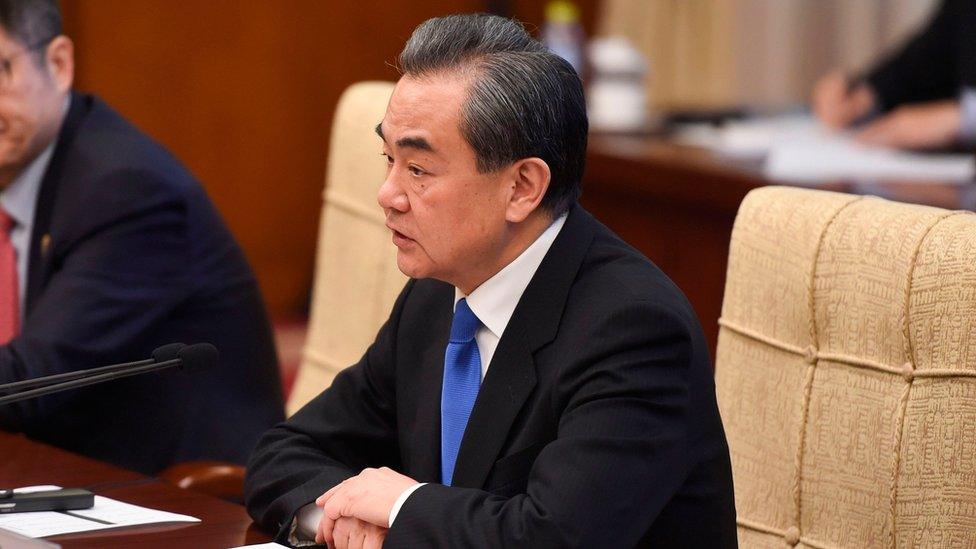
Mr Kim and Mr Moon said they would also pursue talks with the US and China to formally end the Korean War, which ended in 1953 with a truce, not formal peace.
Friday's summit also prepared the way for direct talks between Mr Kim and US President Donald Trump.
Mr Trump has since said talks with North Korea could take place "over the next three or four weeks".
Many analysts, however, remain sceptical about the North's sudden enthusiasm for engagement.
New time zone for a new era
Also on Monday, South Korea said it would take down its loudspeakers which have historically blasted propaganda into the North over the border.
A defence ministry spokesman said it was a "rudimentary" step to help build trust between the Koreas, the Yonhap news agency reports.
The loudspeakers had already been turned off ahead of Friday's summit.
Among the announcements on Friday, Pyongyang said it would change its time zone to run in sync with the South again "as a first practical step for national reconciliation and unity".
The current Northern time zone - 30 minutes behind the South - was created in 2015 to mark the 70th anniversary of Korea's liberation from Japanese occupation after World War Two.
According to North Korean state media, Mr Kim said it was "a painful wrench" to see clocks showing different times on the wall during the summit.
- Published29 April 2018
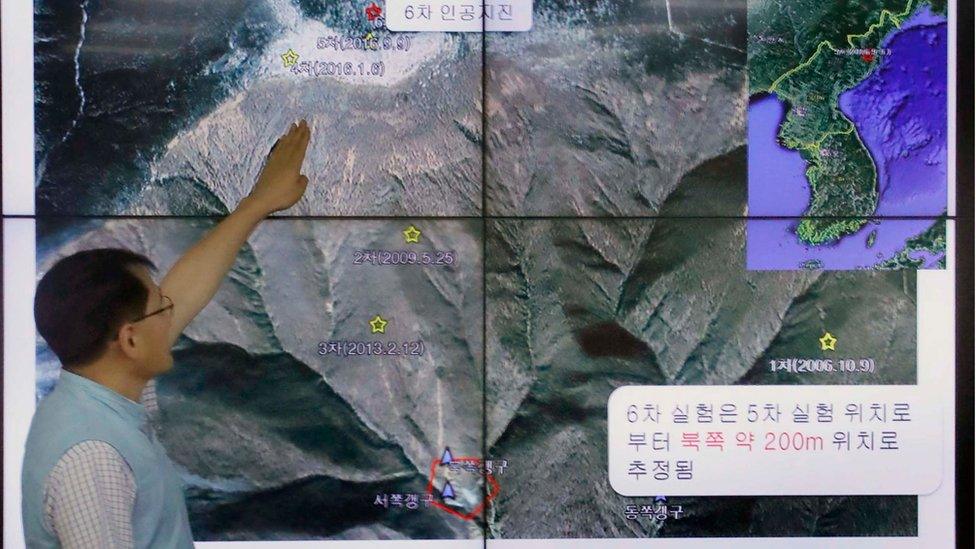
- Published27 April 2018
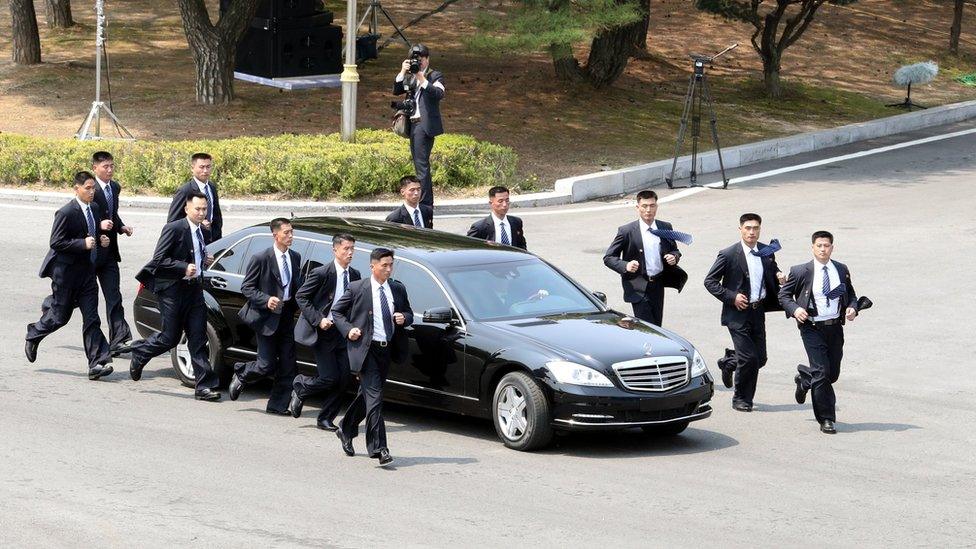
- Published28 April 2018
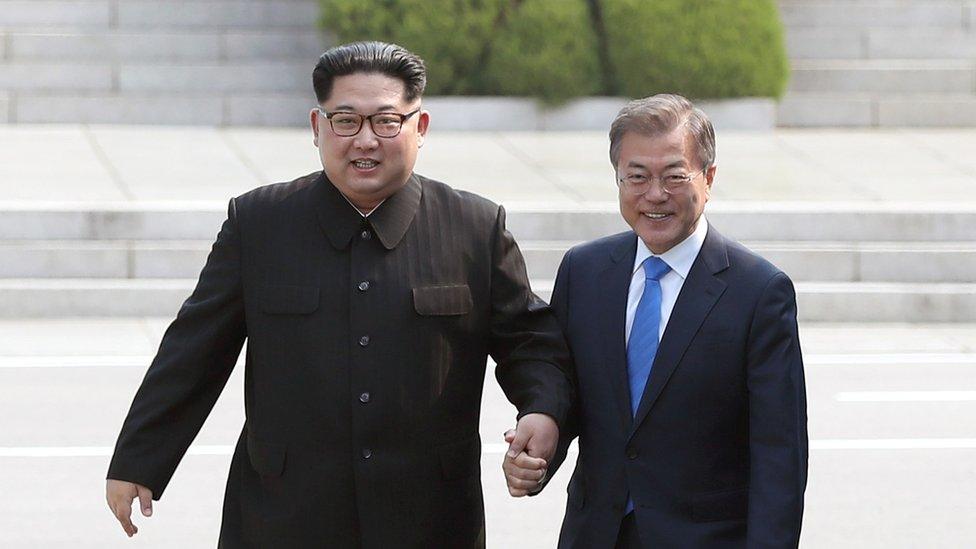
- Published28 April 2018
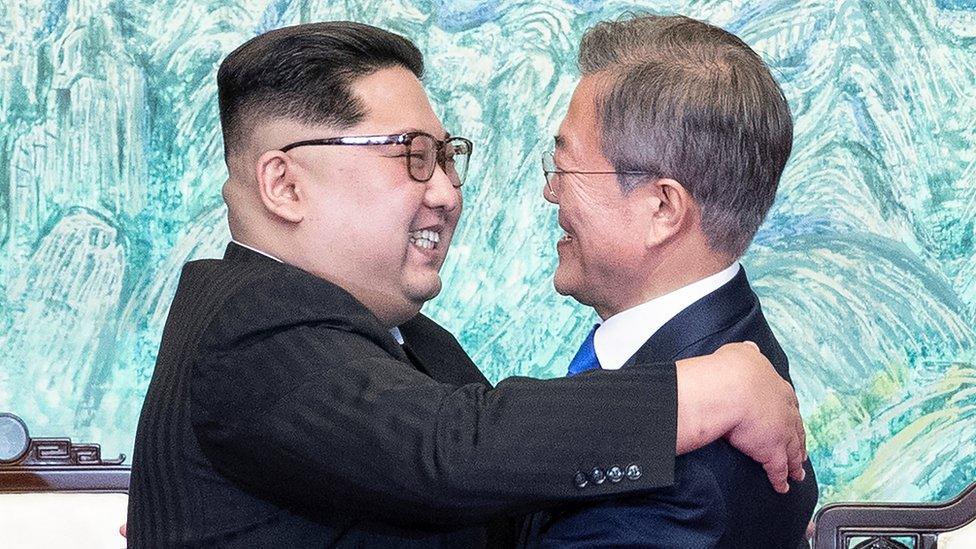
- Published29 April 2018
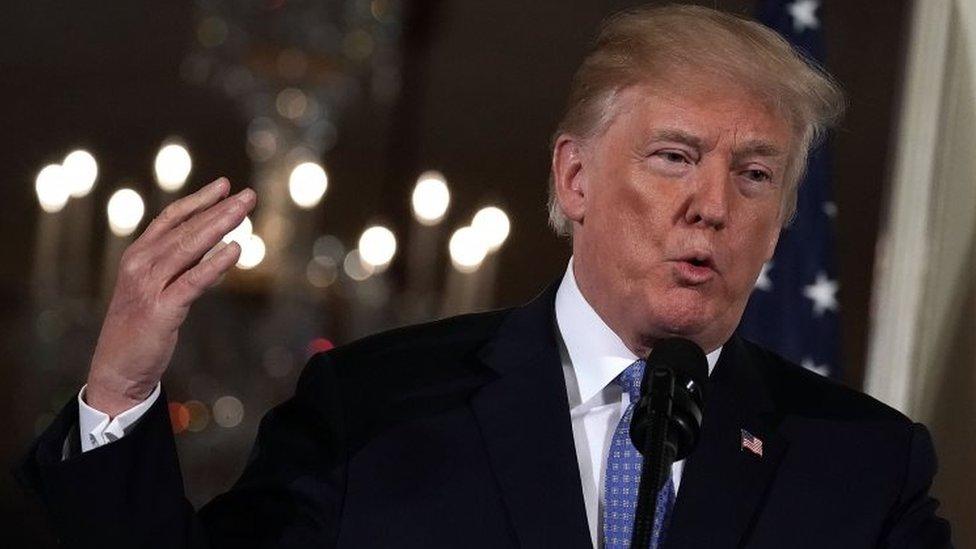
- Published21 April 2020
